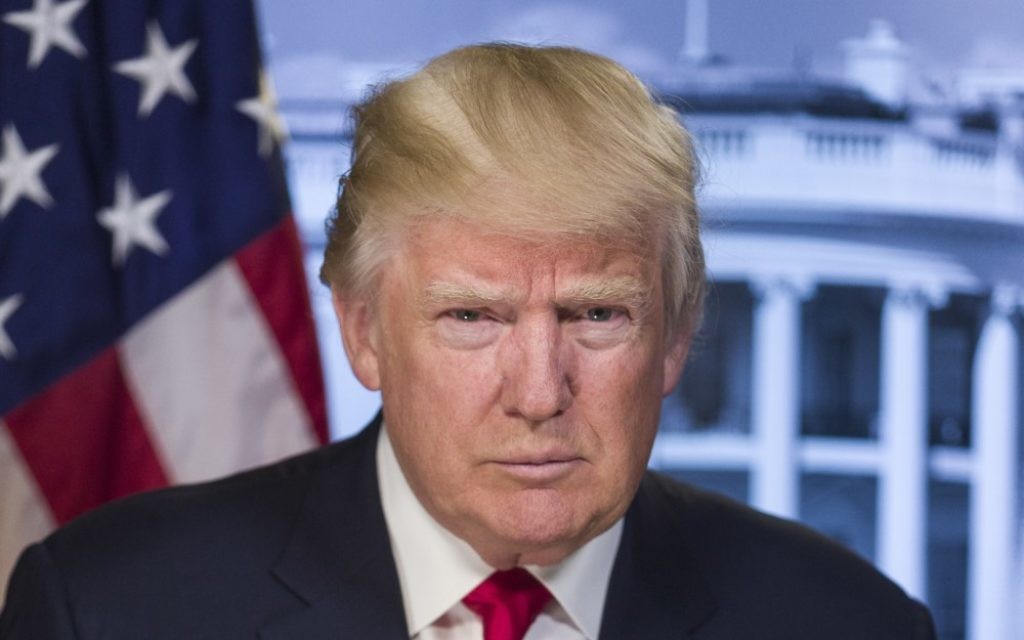Bridges Need to Be Built, Not Burned
A year into the Trump administration, the rest of us should try to close the political chasms.
A week after Donald Trump was elected president, I wrote in this space that Jewish supporters of Hillary Clinton’s “were sitting a sort of shiva, mourning the death of an ideal, their vision of America.”
A year has passed since Jan. 20, 2017, when the 70 percent-plus of Jews who backed Clinton watched (or chose not to) — with varying degrees of resignation, anxiety and rage — as Trump took the oath of office as the 45th president of the United States.
The political atmosphere in this country remains toxic. Americans have inoculated themselves against the possibility that someone with whom they disagree might have a viewpoint worthy of consideration. Partisans have built their silos taller and fortified their walls rather than build bridges across the chasm.
Get The AJT Newsletter by email and never miss our top stories Free Sign Up
Americans can live, work, study — and even arrange their information diet — “in a way that feeds ideological ghettoization and identity politics,” Arthur C. Brooks, the president of the American Enterprise Institute, a Washington think tank, wrote in The New York Times.
I would add the ability to shun co-religionists with whom you disagree.
“Add to this the toxic anonymity of virtual interaction through social media, and we have the ingredients for a culture polarized by the perception that we are good and virtuous, while they are inhuman and evil,” Brooks wrote.
Jews who voted for Clinton say that events have borne out their fears of a Trump presidency and that their resistance is justified. If not elated, Trump’s Jewish supporters are, at least, relatively satisfied with what their votes have wrought, even if they cringe at some of what he says and tweets.
“American Jews are replacing most of our other ideological commitments with partisan politics as the primary instrument of our ethnic and religious identities as Jews. We may even soon see partisan political identity as a more effective descriptor of Jewish diversity than denominational labels,” Yehuda Kurtzer, the president of the Shalom Hartman Institute of North America, said in the Forward.
As evidence of this phenomenon, consider the approval of Trump’s performance among Orthodox Jews, in contrast to the disapproval of Conservative, Reform and Reconstructionist Jews and those identifying as “just Jewish.”
While Americans shoot rhetorical blow darts at each other, the rest of the world wonders what became of E pluribus unum (Out of many, one), which is (at this writing) still the motto of these United States.
In his inaugural address, Trump proclaimed, “We, the citizens of America, are now joined in a great national effort to rebuild our country and to restore its promise for all of our people.”
He added, “We must speak our minds openly, debate our disagreements honestly, but always pursue solidarity.”
That Trump said “we” some 50 times in that speech surely was intentional.
(Because someone will ask, Barack Obama said “we” about a dozen more times in his first inaugural address in 2009.)
The “we” quotient in the American electorate has declined markedly over the past four decades, and little suggests that a rebound is in the offing.
Before Trump sat down behind the Resolute desk in the Oval Office, I said the American system of government was about to undergo a stress test.
The popular concern was that Trump, a real estate magnate and accomplished self-promoter who took office with no experience in — or, it appeared, appreciation for — governance (which his supporters touted as a virtue) posed a danger to the mechanisms that have served this country for 240 years.
If a president goes off the rails, I told those who asked, the Congress and the courts are designed to act like the bumpers on a bowling alley, to prevent the ball from rolling into the gutter.
Some may disagree, but thus far the bumpers (more the courts than Congress) have held, more or less, even if the ball has careened from side to side on occasion.
But no bumpers can restrain the animosity and vitriol, including within the Jewish community, so long as partisans remain more interested in burning than building bridges.





comments